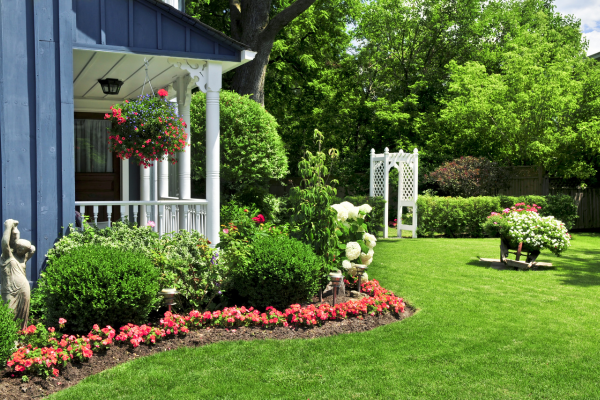Boundaries: Respecting Our Own and Others
by Robin Milner, MA, LPCC, Care Manager
April 16, 2024

We hear a lot about boundaries these days, but do we understand the scope of them and know how to respect them in ourselves as well as others? There is much to be said about boundaries and whole books are written about them. It is outside the scope of this article to do an extensive review; however, we will look at some fundamentals about boundaries, what they encompass, and take a look at ourselves to determine our boundary system, and how we are exercising our boundaries for our good and the good of others.
Let us begin with a definition of what boundaries are. Boundaries define who we are and determine how we interact with and relate to the world, physically, emotionally, and spiritually. Boundaries let us know where we end and others begin, experiencing ourselves as separate from others. Boundaries allow me to express who I am and allow you to do the same.
Our physical boundaries establish our need and right for physical space and safety, including our needs and rights in sexual interactions with others. Emotional boundaries establish our emotional needs, rights, and safety, including our right to our own thoughts and actions. And we are responsible to create and protect these boundaries. Let us look at some distinct types of boundaries.
Having a rigid boundary system is overly protective, and nothing can penetrate in or out. This is extreme and hinders our ability to be in a relationship. Another extreme boundary system is having no boundaries, allowing everything to flood in and out, not being able to distinguish yourself from another and leaving one very vulnerable and unprotected. In contrast, a healthy boundary system controls what goes in and out, choosing what it needs and taking action to obtain it. Healthy boundaries protect us, allow for a give and take in relationships. Having a healthy boundary system means we take responsibility for everything that is a part of our whole self. Let us look at all that our whole self encompasses.
I like to use the analogy of a yard when talking about our whole self and what we are responsible for. In our “yard” there are many things, and it is our job to take care of, guard, and in many cases develop what is in our yard. It is not another’s job to take care of what is in our yard. They have their own yard to care for!
- Finances
- Thoughts
- Feelings
- Beliefs
- Values
- Body
- Health
- Work
- Time
- Relationships
- Recreation
- Exercise
- Learning
- Growing/Education
- Behaviors
- Goals/Desires
- Energy
- Choices
- Gifts/Talents
There are a couple of instances when we are responsible for another. When we have children, we are responsible for their care until they become adults and take over the care of themselves. They become the decider for their lives and how to care for what is in their “yard.” The other instance when we are responsible for another is when they are unable to care for themselves because they are disabled in some way whether physically and/or cognitively.
It is important when caring for another person that we continue to respect them as an individual and respect his or her boundaries. You may wonder how to do that. First, and foremost, we need to ASK if it is okay for us to do something (i.e., “Can I help you with that?”). Second, it is important to empathize with the individual; try to put yourself in their shoes and imagine what it would be like for you. It can be helpful to watch for non-verbal cues like body language, silence, or facial expressions. Be receptive. If someone says no, do not push back. And remember to apologize when you know you have crossed another’s boundary.
In summary, boundary systems are invisible and have three purposes.
- To keep people from coming into our space and abusing us.
- To keep us from getting into the space of others and abusing them, and
- To give each of us a way to embody our sense of who we are.
Let us determine to respect, care for our boundaries, and respect the boundaries of others.
Robin Milner, MA LPCC is the Clinical Manager for Elder Options and has a passion to advocate for those who cannot advocate for themselves, providing them with the care and dignity each of us deserve.

